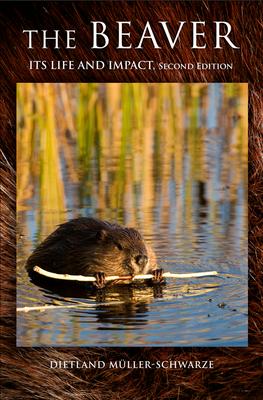The Beaver: Its Life and Impact is designed to satisfy the curiosity and answer the questions of anyone with an interest in these animals, from students who enjoy watching beaver ponds at nature centers to homeowners and land managers. Color and black-and-white photographs document every aspect of beaver behavior and biology, the variety of their constructions, and the habitats that depend on their presence.
A second edition of The Beaver: Ecology and Behavior of a Wetland Engineer, published by Cornell University Press under its Comstock Publishing Associates imprint in 2003, this book has been revised throughout and includes a new section on population genetics and features updated data about the beaver's range in North America, reintroduction efforts in Europe, and information about the world's largest beaver dam, discovered in northern Alberta in 2010 and visible from space, as well as the most current bibliography on the subject.
As this book shows, the beaver is a keystone species--their skills as foresters and engineers create and maintain ponds and wetlands that increase biodiversity, purify water, and prevent large-scale flooding. Biologists have long studied their daily and seasonal routines, family structures, and dispersal patterns. As human development encroaches into formerly wild areas, property owners and government authorities need new, nonlethal strategies for dealing with so-called nuisance beavers. At the same time, the complex behavior of beavers intrigues visitors at parks and other wildlife viewing sites because it is relatively easy to observe.
